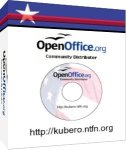Microsoft Word is the dominant word processor in current use, making Word's proprietary document file format (DOC) the de facto standard which competing products must support to interoperate in an office environment. File import and export filters exist for many word processors such as AbiWord or OpenOffice.org (see the article on word processor for other competitors). Most of this interoperability is achieved through reverse engineering since documentation of the file format, while available to partners, is not openly available. The document formats of the various versions of Word change in subtle and not so subtle ways; formatting created in newer versions does not always survive when viewed in older versions of the program, nearly always because that capability does not exist in the provious version. The DOC format of Word 97 was publicly documented by Microsoft, but later versions have been kept private, available only to partners, governments and institutions. Industry rumors claim some aspects of the Word file format are at present not fully understood even by Microsoft themselves. Lately Microsoft has stated that they will move towards an XML-based file format for their office applications. Word 2003 has an XML file format as an option using a publicly documented schema called WordprocessingML available in all editions of Word2003, and endorsed by such institutions as the Danish Government. The "professional" edition includes the ability to handle non-Microsoft schemas directly in Word. Apache Jakarta POI is an open-source Java library that aims to read and write Word's binary file format.
Introduction | Begining | 1990-1995 | Formats | Viruses | MS-DOS Versions | Apple Macintosh Versions | Microsoft Windows Versions
OpenOffice.org - the New Office Software Solution
Before you purchase Microsoft® Office, please consider this office suite.
 Features | Screenshots | System Requirements |
Only $9.95
Reg. $40 30-day Money Back Guarantee |
|
Main Page
Microsoft® and Windows® are registered trademarks of Microsoft Corporation in the United States and other countries.
Copyright © 2004 kubero.ntfn.org

